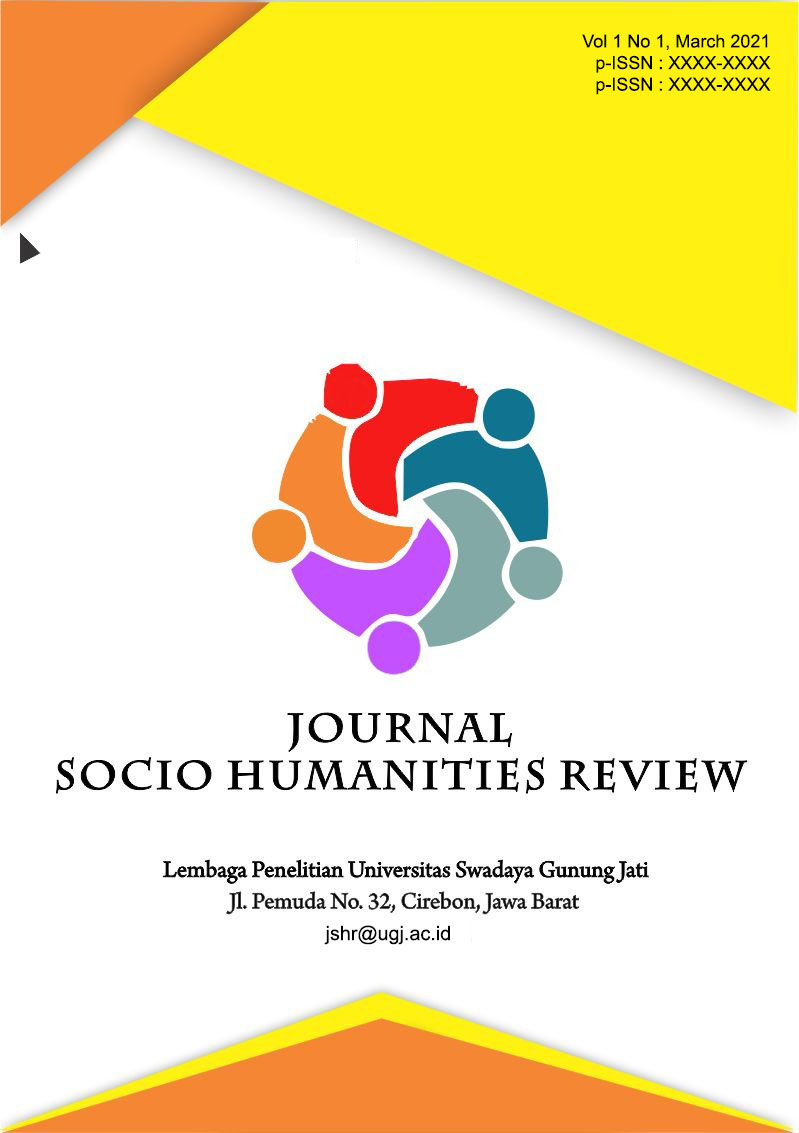Generation Z Consumer Satisfaction in Online Shopping
DOI:
https://doi.org/10.33603/jshr.v1i1.5878Keywords:
Millennials, Generation Z, Online ShoppingAbstract
Generation Z is the generation born from 1998 – 2010. Similar to Millennials, Generation Z likes to shop at offline stores as a social activity. But this generation is also one of the generations who use their smartphones the most to find the product they want to buy. The characteristics of the millennial and z generations that are closely related to technology are then used by e-commerce companies for promotion. It is proven that almost all sources of information about e-commerce come from digital media.
Conducted a series of tests on hypotheses using predetermined statistical analysis techniques, namely correlation analysis, both simple and multiple regression with a total of 140 respondents who filled out the questionnaire. The influence between the variable price (X1) and consumer satisfaction Generation Z (Y) of rxy = 0.147 is very low. The influence between the Promotion variable (X2) and Generation Z (Y) consumer satisfaction of rxy = 0.138 is very low. The relationship between the variable Price (X1) and Promotion (X2) of rxy = 0.999 is classified as very high (strong). The simultaneous influence of Price (X1) and Promotion (X2) variables on Generation Z (Y) consumer satisfaction of 0.218 is relatively low. Generation Z consumer satisfaction in online shopping through selling prices and promotions can increase sales results and consumer satisfaction.
References
Arsyani, Annur Fatima (2019), Pengaruh Potongan Harga Belanja Online Terhadap Perilaku Konsumen (Studi Empirik Pada Mahasiswa Pendidikan Ekonomi Fakultas Ekonomi Universitas Negeri Makassar). Diploma Thesis, Universitas Negeri Makassar: http://eprints.unm.ac.id/id/eprint/14187.
Devi, Lenggang Kurnia Intan (2019), Pengaruh kualitas produk, harga dan promosi terhadap keputusan pembelian pada marketplace Shopee (studi kasus pada mahasiswa di Surabaya). Undergraduate Thesis, UIN Sunan Ampel Surabaya: http://digilib.uinsby.ac.id/id/eprint/29623
Din Jannah, Kamalina (2019,) Perilaku Konsumen Generasi Z terhadap Minat beli Online pada Market Place Shopee. Project Report, PPMA FE Universitas Pekalongan, Pekalongan: http://repository.unikal.ac.id/id/eprint/66
Fajarianto, O., Lestari, A. D., Erawati, D., Komunikasi, I., Swadaya, U., & Jati, G. (2021). PEMANFAATAN QR CODE SEBAGAI MEDIA PROMOSI DAN. 9(1).
Herlina Usman, Nidya Chandra Muji Utami, & Otto Fajarianto. (2019). Model Bahan Ajar Bahasa Inggris Untuk SD Berbasis Pendekatan Kontekstual. JTP - Jurnal Teknologi Pendidikan. https://doi.org/10.21009/jtp.v21i3.11392
Jujun Titus Setiawan, Yogi Yogaswara, DS, Asep Toto Kartaman, DS (2019) Analisis Pengaruh Produk, Harga, Promosi, Dan Tempat Terhadap Kepuasan Konsumen Serta Indukasinya Pada Keputusan Pembelian Secara Online (Studi Kasus : Online Shop Zhofira). Skripsi(S1) Thesis, Fakultas Teknik Unpas: http://repository.unpas.ac.id/41255/
Veliana Angela, Eristia Lidia Paramita (2020), Pengaruh Lifestyle Dan Kualitas Produk Terhadap Keputusan Impulse Buying Konsumen Shopee Generasi Z. http://ejournal.stiemj.ac.id/index.php/ekobis 248 p-ISSN (2088-219X) e-ISSN (2716-3830) JURNAL EKOBIS: EKONOMI, BISNIS & MANAJEMEN Vol 10 Nomor 2, 2020.
Downloads
Published
How to Cite
Issue
Section
License
Authors who publish with this journal agree to the following terms:
- Authors retain copyright and grant the journal right of first publication with the work simultaneously licensed under a Creative Commons Attribution License that allows others to share the work with an acknowledgement of the work's authorship and initial publication in this journal.
- Authors are able to enter into separate, additional contractual arrangements for the non-exclusive distribution of the journal's published version of the work (e.g., post it to an institutional repository or publish it in a book), with an acknowledgement of its initial publication in this journal.
- Authors are permitted and encouraged to post their work online (e.g., in institutional repositories or on their website) prior to and during the submission process, as it can lead to productive exchanges, as well as earlier and greater citation of published work.
JSHR (Journal Socio Humanities Review) is licensed under a Creative Commons Attribution-NonCommercial 4.0 International License.











